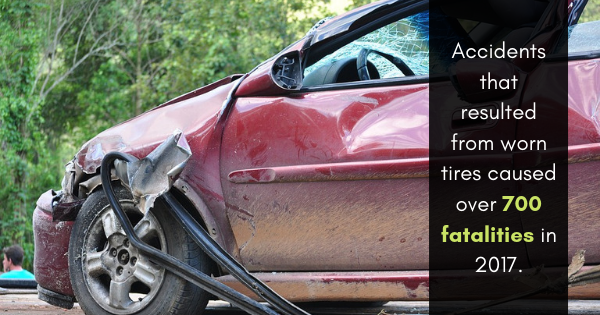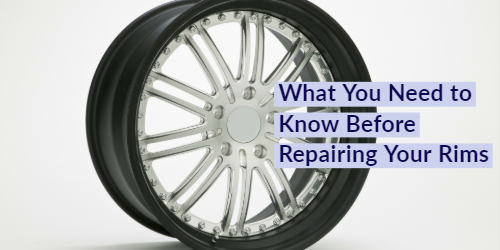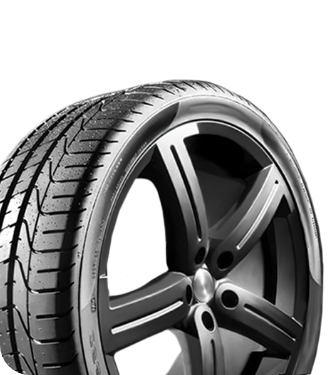
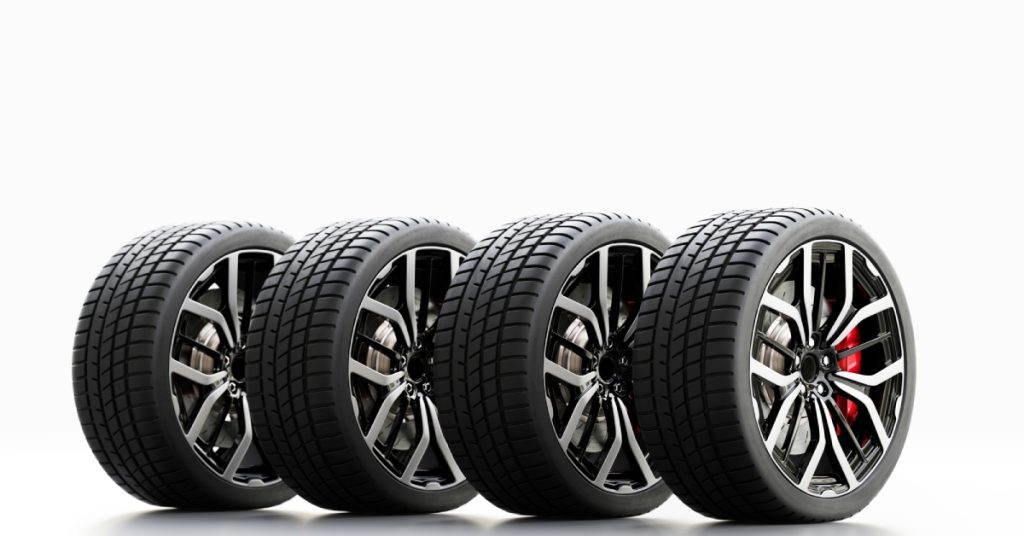
Tips for Choosing the Right Wheels for Your Vehicle
Wheels |Wheels can make or break your driving experience. Not only do they affect your vehicle’s aesthetics, but they also impact performance, safety, and fuel efficiency.
If you’re looking to upgrade your wheels or replace the current set, you’re in the right place. We’ll offer helpful tips for choosing the right wheels for your vehicle and explain key factors to consider, how to understand wheel specifications, and the most common wheel materials.
Factors To Consider When Choosing Wheels
Before exploring the many wheel options, consider the following factors:
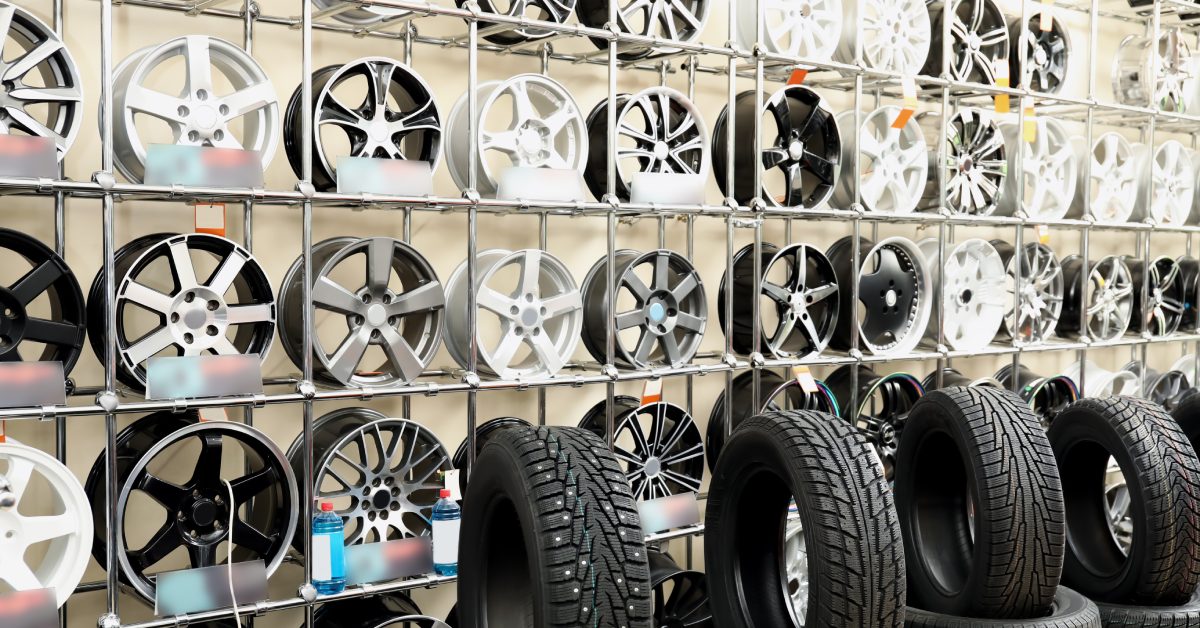
Size and Fitment
The first and most important factor when selecting new wheels for your car is ensuring they fit correctly! The wrong size can negatively affect your vehicle’s handling, safety, and comfort. Always consult your owner’s manual or an automotive professional to choose the correct wheel size.
Common terms you’ll encounter include diameter, width, and offset. Diameter refers to the wheel’s size, while width means how the tire sits on the wheel. Offset measures the distance between the wheel’s mounting surface and its centerline, influencing how the wheels sit within the wheel well.
Material and Weight
Next on the wheel shopping list is the material and weight of the wheel. Wheels come in various materials, each affecting performance differently.
The weight of the wheel is also worth considering. Lightweight wheels reduce unsprung mass, leading to improved fuel efficiency and better handling on the road. Heavier wheels, however, offer greater durability and are typically more affordable. Consider how you want your wheels to contribute to your driving experience before narrowing your options of wheel materials and weight.
Design and Aesthetics
Your wheels should complement your vehicle’s design. You can find a plethora of designs, from classic five-spoke to intricate multi-spoke patterns, in stores and online. While aesthetics are subjective, consider how the wheel design will look on your vehicle. A nice set of wheels can elevate your car’s appearance and make it stand out.
Budget Considerations
Price is always a factor when choosing wheels. Determine your budget before shopping to avoid overpaying or tempting yourself with expensive options.
Alloy wheels are generally more affordable than forged wheels, and they offer excellent performance and aesthetics. Steel wheels are budget-friendly but may not provide the same level of performance and style. Weigh the pros and cons of each before deciding.
Understanding Wheel Specifications
Drivers must also understand the specifications of their current wheels to find an ideal fit for the new ones.
Reading Tire and Wheel Specifications
Understanding the specifications of your tires and wheels can be tricky. Numbers and letters indicate size, load index, and speed rating.
For instance, a tire marked “225/45R17 91V” indicates a width of 225 mm, an aspect ratio of 45 percent, radial construction, a diameter of 17 inches, a load index of 91, and a speed rating of V. Matching these specifications to your vehicle supports both performance and safety.
Matching Wheels to Vehicle’s Size, Load Index, and Speed Rating
Drivers should know the key terminology regarding their vehicle’s wheel size and specifications, such as load index and speed rating. What do these terms mean? The load index refers to the maximum weight a tire can safely carry, ensuring a vehicle can handle its intended load.
The speed rating indicates the highest speed at which the tire can perform safely. It’s important to select new wheels that meet or exceed these specifications for optimal safety and performance.
The Impact of Wheels on Vehicle Performance
Different wheel types can significantly affect your vehicle’s handling, fuel efficiency, and ride quality. Lighter alloy wheels enhance handling and fuel efficiency, while heavier steel wheels may compromise performance but provide durability. Forged wheels strike the best balance, offering superior performance and ride quality. We recommend choosing wheels that match your driving style and needs.
Wheels also influence braking performance; large wheels can accommodate bigger brake calipers for improved stopping power, but they may also add weight and affect acceleration and fuel efficiency. Balancing these factors is crucial for refining braking performance.
Popular Wheel Types and Their Advantages
Perhaps the most important tip for choosing the right wheels for your vehicle is understanding wheel materials and their qualities. We’ll give a brief rundown of popular wheel materials to give you a better grasp of their characteristics.

Alloy Wheels
Alloy wheels are popular for their light weight and stylish designs. Made from aluminum, they offer good heat dissipation and improved braking performance. They are also durable and resistant to rust.
Steel Wheels
Steel wheels provide greater durability than alloy models and are excellent for drivers on a budget. They are heavier than alloy wheels, which can affect your vehicle’s performance, but they are less prone to damage and bending. Steel wheels are excellent for winter driving and off-road adventures.
Forged Wheels
Wheel makers create forged wheels by compressing aluminum into a dense, strong structure. This makes them lighter and stronger than cast wheels. They offer superior performance, making them popular among daily drivers and racers. However, they come at a higher price point than other models.
Off-Road and Performance Wheels
Off-road and performance wheels suit specific driving conditions. Off-road wheels withstand rough terrain, while performance wheels enhance speed and handling. These wheels are typically more robust than other models to meet the demands of drivers.
Wheel Maintenance and Care Tips
After acquiring your new wheels, you have to care for them to get the most value out of your purchase. We recommend the following maintenance tasks:
- Keep wheels clean from brake dust, dirt, and debris to prevent corrosion and maintain their appearance.
- Check wheel alignment to enhance handling and prevent uneven tire wear.
- Have your tires balanced regularly to improve ride quality and reduce vibrations.
- Routinely check that lug nuts are tight to prevent wheel loosening.
By following these maintenance tasks, drivers can extend the lifespan of their wheels, keep them in optimal condition, and enhance their vehicle’s safety and performance.
Cleaning and Protecting Wheels From Environmental Damage
Keeping your wheels clean not only enhances their appearance but also prevents damage from corrosion. To clean your new wheels , use a mild soap and water solution. Avoid harsh chemicals that can damage the finish. Also, apply a protective coating to shield the wheels from environmental damage such as road salt and grime.
Find New Wheels and Tires at RNR Tire Express!
Now that you have a general understanding of what to look for, you’re ready to find the ideal set of wheels for your vehicle! At RNR Tire Express, we have a wide selection of wheels and tires in Clovis, New Mexico, from affordable steel wheels to high-performance forged units. Browse our inventory to find the perfect wheel for your car, or schedule an appointment with one of our experts today.
